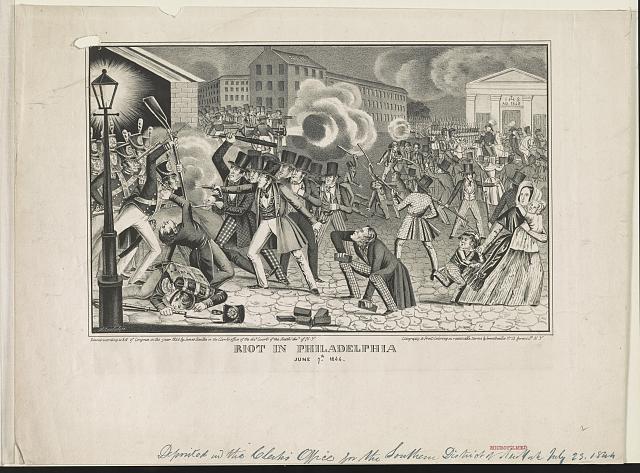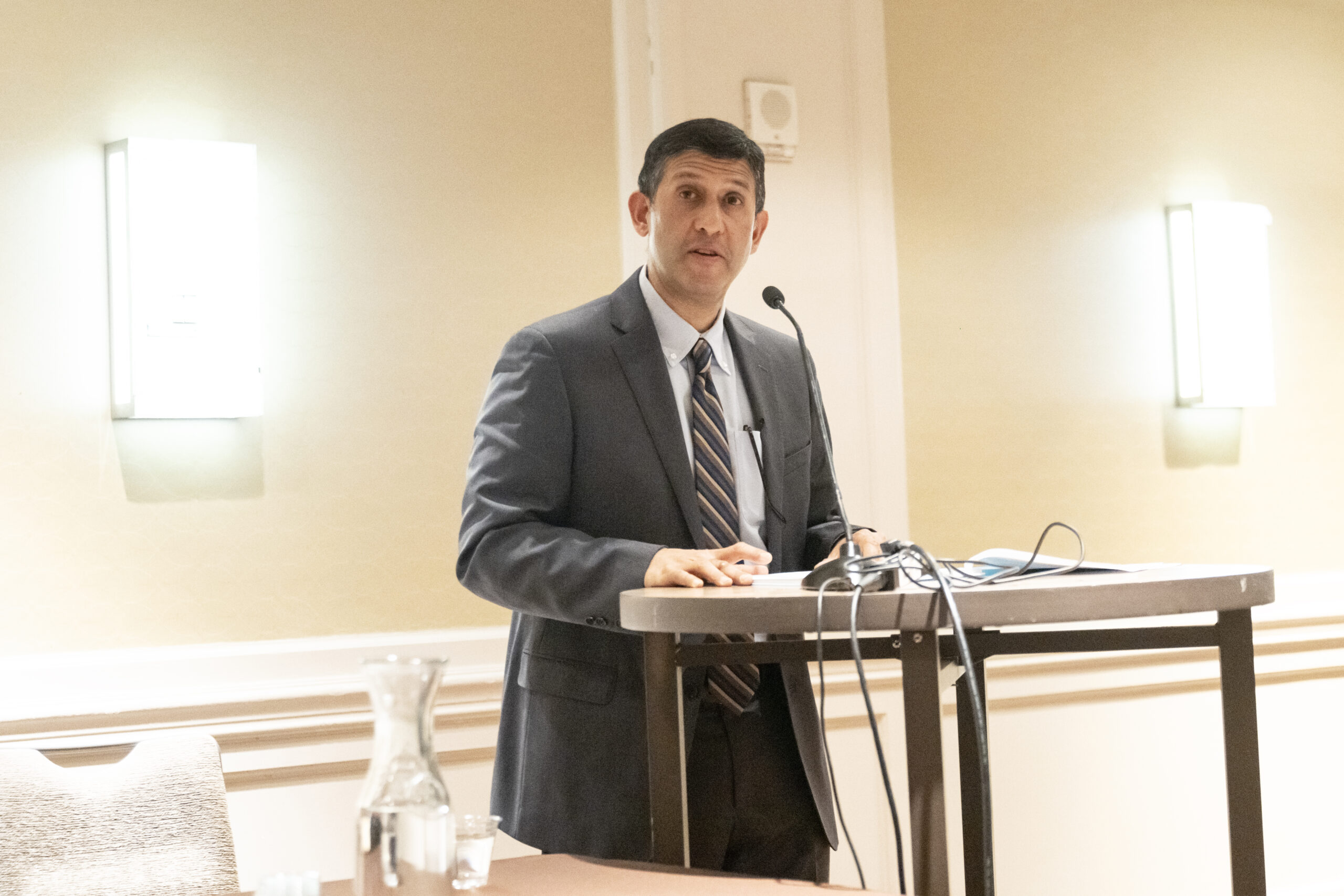Every year PRIM&R (Public Responsibility in Medicine and Research) sponsors a Human Research Protection Programs (HRPP) conference that brings together researchers in medicine, social and behavioral sciences, administrators and members of institutional review boards (IRBs), ethicists, and federal officials to share experiences and discuss the promotion of ethical practices in research involving human subjects. The 2006 conference, held in Washington, D.C., November 16–18, provided an opportunity for clarification of previous federal statements on whether or not oral history is subject to review by IRBs. It also was an opportunity to raise awareness about the specific issues IRBs must take under advisement when reviewing ethnographic and oral history protocols. As a historian who sits on my university’s IRB, does oral history research, teaches an oral history methods seminar, and has made modest efforts to alleviate the hostility between IRBs and practitioners of social, behavioral, and educational research (SBER), I was both heartened and frustrated by what I heard at the conference, and feel obliged to share with my fellow historians some information about the conference discussions.
A Failed Strategy
Regular readers of Perspectives are well aware of the knotty problem of oral history and institutional review. In response to complaints from historians that IRBs were making unreasonable demands that were more appropriate to biomedical research protocols than to oral historical or social scientific research, the American Historical Association and the Oral History Association (OHA) advocated the exclusion of oral history from federally mandated institutional review. On September 22, 2003, the federal Office of Human Research Protection (OHRP) responded to the AHA and the OHA’s petition that oral history be “excluded” from review, based primarily on the argument that oral history does not constitute “research” as defined by federal regulations. Additional arguments in favor of exclusion asserted that oral history involves minimal risk to interview subjects and narrators, and that the federal regulations were written with biomedical research in mind and thus are not applicable to historical and SBER projects. As Michael Carome, OHRP’s associate director for regulatory affairs, reaffirmed at the PRIM&R meeting, OHRP’s letter “concurred” with the OHA and AHA that some oral history did not meet the federal definition, and thus did not require review, but that some oral history projects were indeed research and therefore needed to be submitted to IRBs.1 Since that 2003 letter, however, most IRBs have exercised their prerogatives to continue to review oral history projects, prompting the AHA to protest again to OHRP in early 2006.2
In a letter I wrote to Perspectives in December 2003, and as an invited panelist on research ethics at the 2004 OHA Annual Meeting in Portland, I argued that the tactic of claiming oral history is not research as defined by the federal guidelines was unwise and self-defeating.3 While I would agree that some oral history projects do not meet that definition of research, most such projects would be conducted by historians who work for institutions that don’t even have IRBs. However, any historian seeking academic employment, tenure, or graduate degrees at reputable colleges and universities must engage in “research,” so-called “systematic investigations contributing to generalizable [historical] knowledge.” Doing the type of oral history that is not reviewable (for example, collecting stories but not analyzing them with reference to other data or interpretations) will not get them the desired academic credentials. Historians frequently use specific case studies to make more general statements about historical change. If it does not “contribute to generalizable knowledge” (that is, general conclusions that transcend the subject population), tenure, promotion, or search committees, journal editors, and publishers will ask, what’s the point of doing the project?
Recycling the Debate
The strategy adopted by the AHA and OHA, to pull oral history out of the review process, has clearly failed in its objectives: IRBs around the country continue to require that oral history projects be reviewed, because they do indeed constitute “research” in the regulatory sense. The consequences of that tactical failure were obvious at the PRIM&R meeting. I attended a workshop entitled “Ethical and Practical Issues in Ethnographic Research: Quality Review of Qualitative Research,” and was astounded by the persistent ignorance among IRB administrators and board members in attendance about the special needs of SBER and oral history: open-ended, evolving research questions, and flexibility with regard to data disposition, informed consent procedures, and confidentiality. I found it appalling that the discussion had not moved forward in the six years that I have been involved in the research ethics community, and I said so at the workshop. The horrific experiences many historians endure in their interactions with IRBs remain all too common because far too many IRBs remain ignorant of the historical and SBER communities’ methods.4 These experiences are very real, and the AHA, OHA, and AAUP have a responsibility to advocate for scholars who encounter such problems.
Yet I attribute these difficulties less to recalcitrance among the “hard” scientists than to the refusal of so many SBER investigators and oral historians to be involved in the institutional review process. A “non-compliance” movement has surged in recent years, but from what I could see at the HRPP conference, it has done far more harm to the cause than good. How can we condemn IRBs for their insensitivity to our needs when our representative organizations devote their energies to excluding our research rather than to getting involved in the review process? If we refuse to teach IRBs, how can they learn what we need them to know?
Institutional Review as Peer Review
Historians tend to be antiauthoritarian in their outlooks; indeed, suspicion of power and analysis of its exercise are pivotal intellectual attributes that are part and parcel of the best historical thinking. And yet we do accept authority and oversight in certain circumstances, most clearly in the peer review process. We are willing to submit our work for peer inspection to validate or challenge our research findings, but by and large we are unwilling to submit our work to review boards to scrutinize the ethics of our research methods. J. Michael Oakes, a social epidemiologist at the University of Minnesota, delivered a plenary lecture at the HRPP that persuasively argued that IRBs should be viewed as—and should behave as—peer review systems rather than as unaccountable “leviathans” exercising authority from on high. It is probably a challenge for many historians to accept a research oncologist as a “peer” worthy of reviewing their work. Yet my own experience suggests this is a valid and viable model: IRBs are staffed by scholars engaged in their own research projects, who care as much about academic freedom as the scholars whose work they review.
A New Approach
We might serve our own interests more effectively by participating in rather than fleeing from the process. Oral historians have so much to contribute with regard to recruitment of subjects, appropriate interview techniques and contexts, cultural diversity issues, and data retention (or disposal) from which behavioral and biomedical scientists could benefit. The OHA’s Professional Guidelines, carefully constructed and modified over a period of decades, can and should be a fundamental element of each IRB member’s training, and the AHA and OHA should devote their energies to making sure that happens. How can we in good conscience deny them our expertise?
On the other hand, oral historians stand to gain more in terms of their ethical understanding than they stand to lose if they do participate on IRBs. As unimpeachable as the OHA’s own Professional Guidelines may be, I think it is arrogant to assume that oral historians have nothing to learn from other disciplines with regard to the ethical treatment of human subjects. If nothing else, they can become more sensitized to the possibilities for psychological or social harm that may result from oral history interviewing. Whenever our IRB reviews a protocol from the psychology department that involves questions about childhood abuse or some other trauma, we make sure that the investigator is either qualified to directly provide appropriate counseling or intervention, or provides a list of appropriate support services. How many oral historians have the expertise or qualifications to handle a situation in which an informant with PTSD experiences distress during an interview? How many would have a list of counseling services at hand in case it was necessary? How many even imagine such a scenario when they venture out with their tape recorders? Most oral historians may not be compelled to consider the validity of these risks unless they become involved in a broader discussion on research ethics with their colleagues in other disciplines. This is one of the dangers of treating oral history as a “special case,” which is precisely the grounds on which the OHA and AHA made their appeal to OHRP.
There was some good news for historians at the HRPP. The OHRP’s Carome stated explicitly that documentary films do not constitute research under the federal regulations, and therefore need not be reviewed by IRBs. I pressed him on this after his lecture, to which he responded that OHRP had not yet seen a film that fit the regulatory definition. PRIM&R also announced a dedicated SBER conference to be held in May 2007 in Chicago (check www.primr.org for more details as they become available). A strong showing by oral historians at this meeting might provide an opportunity for fresh thinking on how to resolve ongoing disputes.
Notes
1. The statement by the Office for Human Research Protections, entitled “Application of the Department of Health and Human Services Regulations for the Protection of Human Subjects at 45 CFR Part 46, Subpart A to Oral History Interviewing,” is available athttps://omega.Dickinson.edu/organizations/oha/org_irb.html. Linda Shopes and Donald Ritchie attempted to clarify the statement in subsequent letters, writing, “If oral historians deem that their oral history projects do not meet the regulatory definition of research, they can proceed without consultation with an IRB. If a project does meet the regulatory definition of research, it could still be ‘exempted’ by an IRB, but that must be determined by the IRB” (“Questions Regarding the Policy Statement,” at https://www.dickinson.edu/oha/org_irbquestion.html). There is an improper and confusing misuse of the terminology here: the proper review category would be “expedited,” not “exempted.” See also the clarification by Linda Shopes and Donald Ritchie, “Exclusion of Oral History from IRB Reviews: An Update,” Perspectives, March 2004.
2. “Letter to the Director of the OHRP,”Perspectives, February 2006.
3. “Letters to the Editor,” Perspectives, December 2003.
4. See for instance Bernadette McCauley, “An IRB at Work: A Personal Experience,”Perspectives February 2006; the special issue on IRBs in Journal of Applied Communication Research 33.3 (August 2005); and the AAUP report “Research on Human Subjects: Academic Freedom and the Institutional Review Board.”
E. Taylor Atkins is associate professor and director of undergraduate studies in the department of history at Northern Illinois University. He is the author of Blue Nippon: Authenticating Jazz in Japan (Duke Univ. Press, 2001, winner of the 2003 John Whitney Hall Prize), and editor of Jazz Planet (Mississippi, 2003). He wishes to thank Beatrix Hoffman and Patty Wallace for their feedback and suggestions on an earlier draft of this essay.


